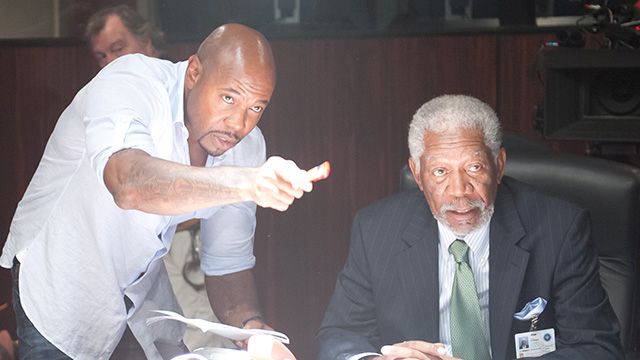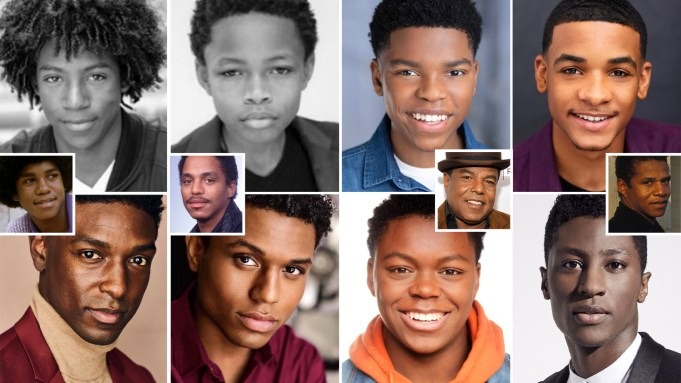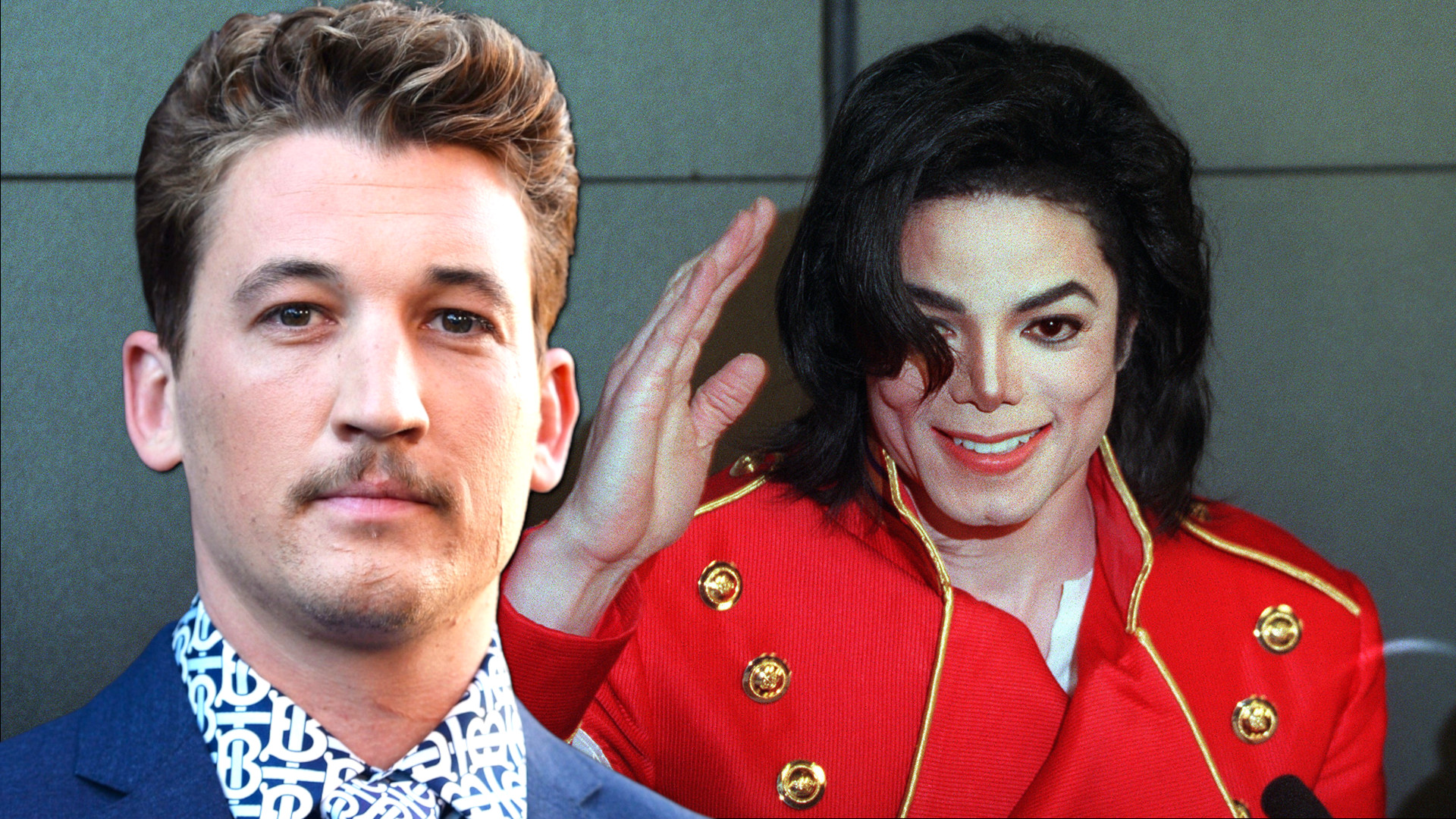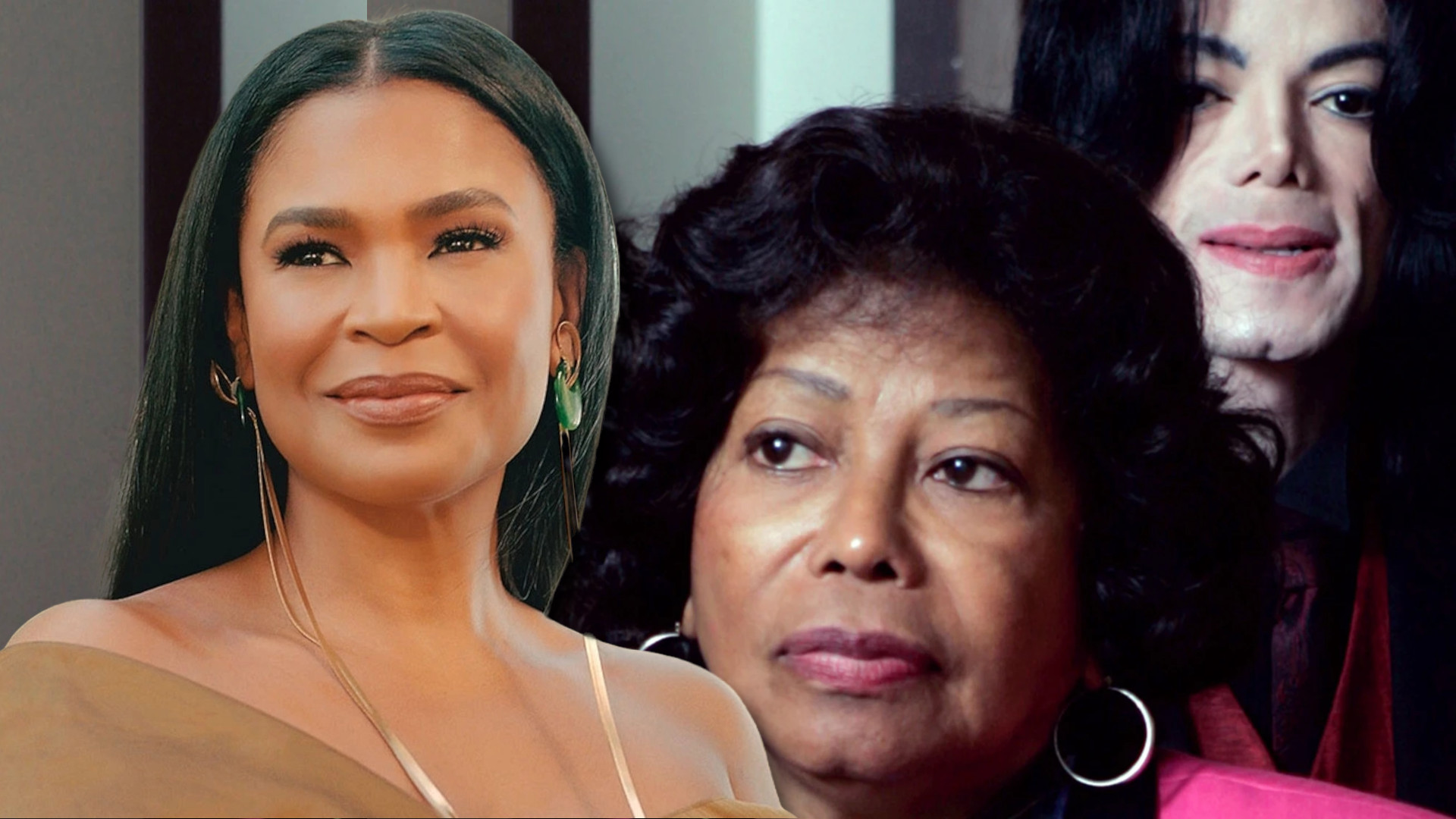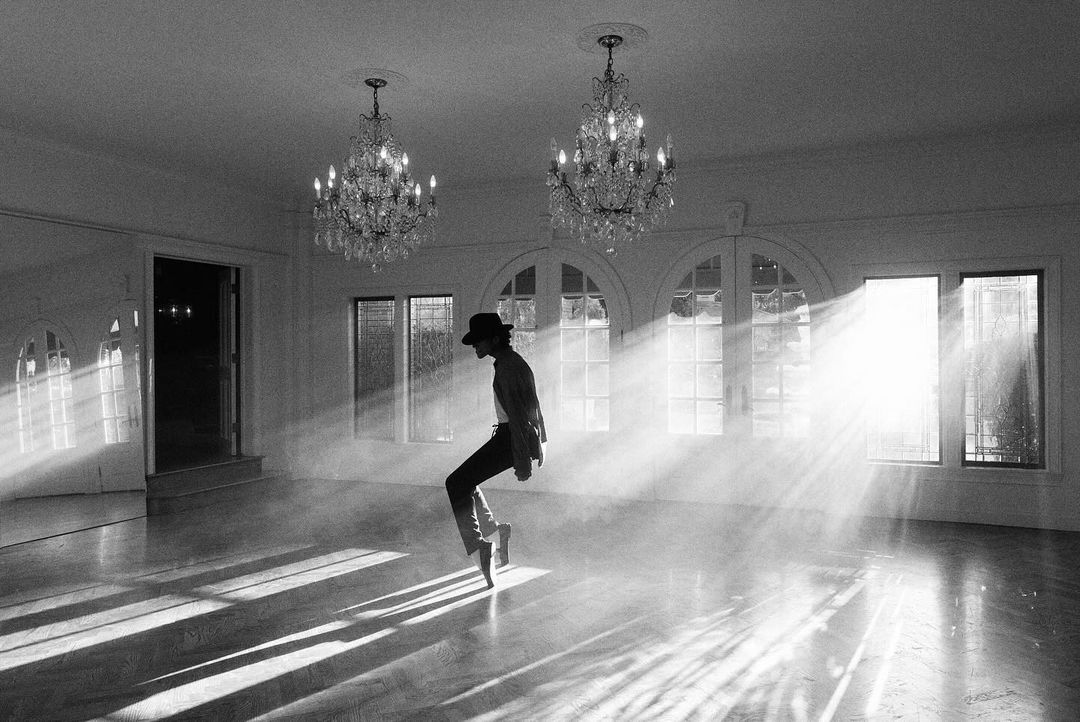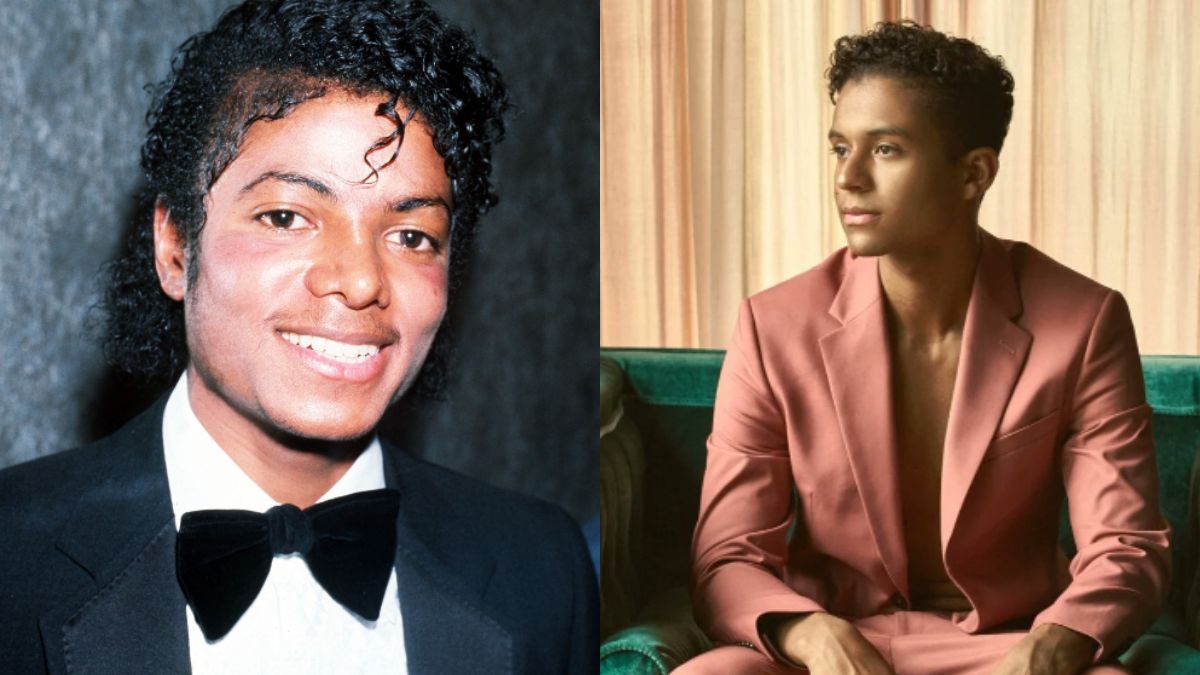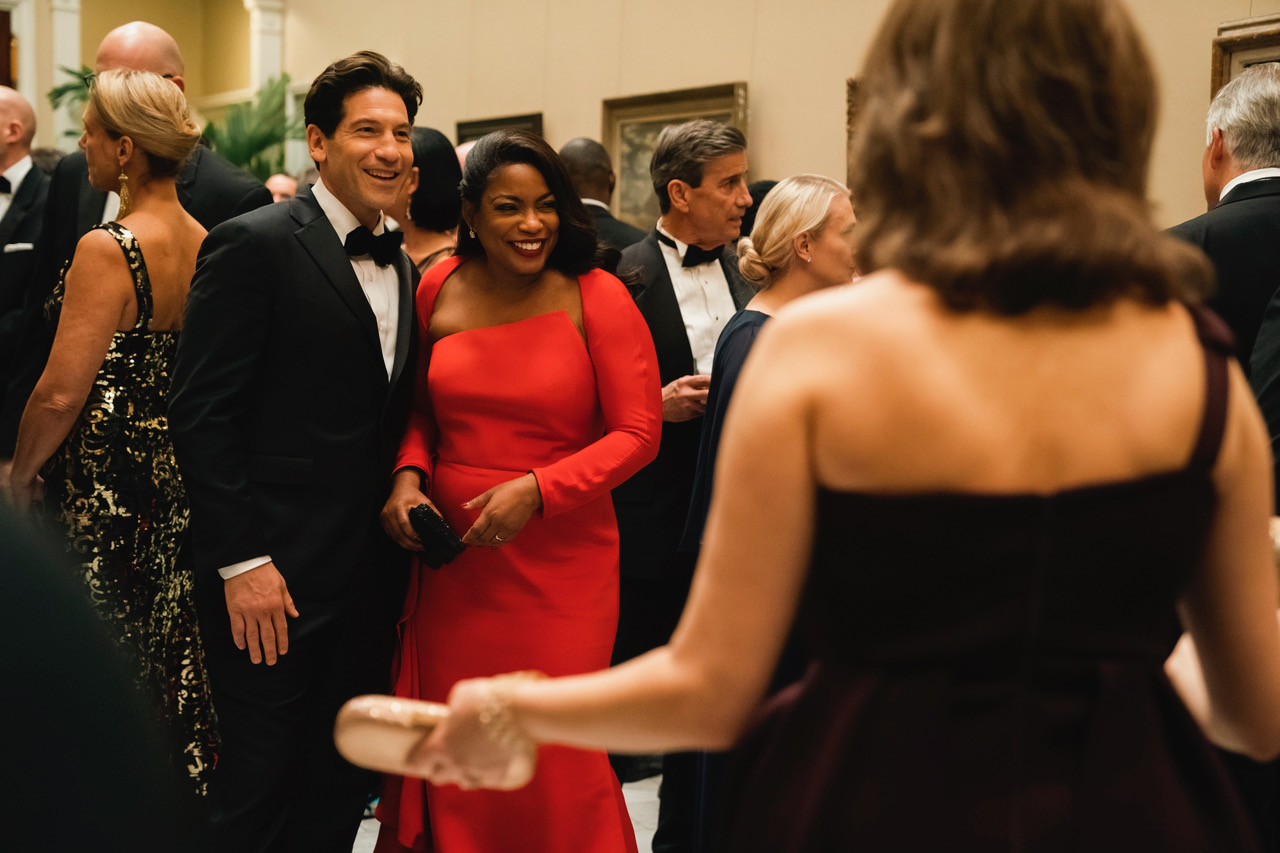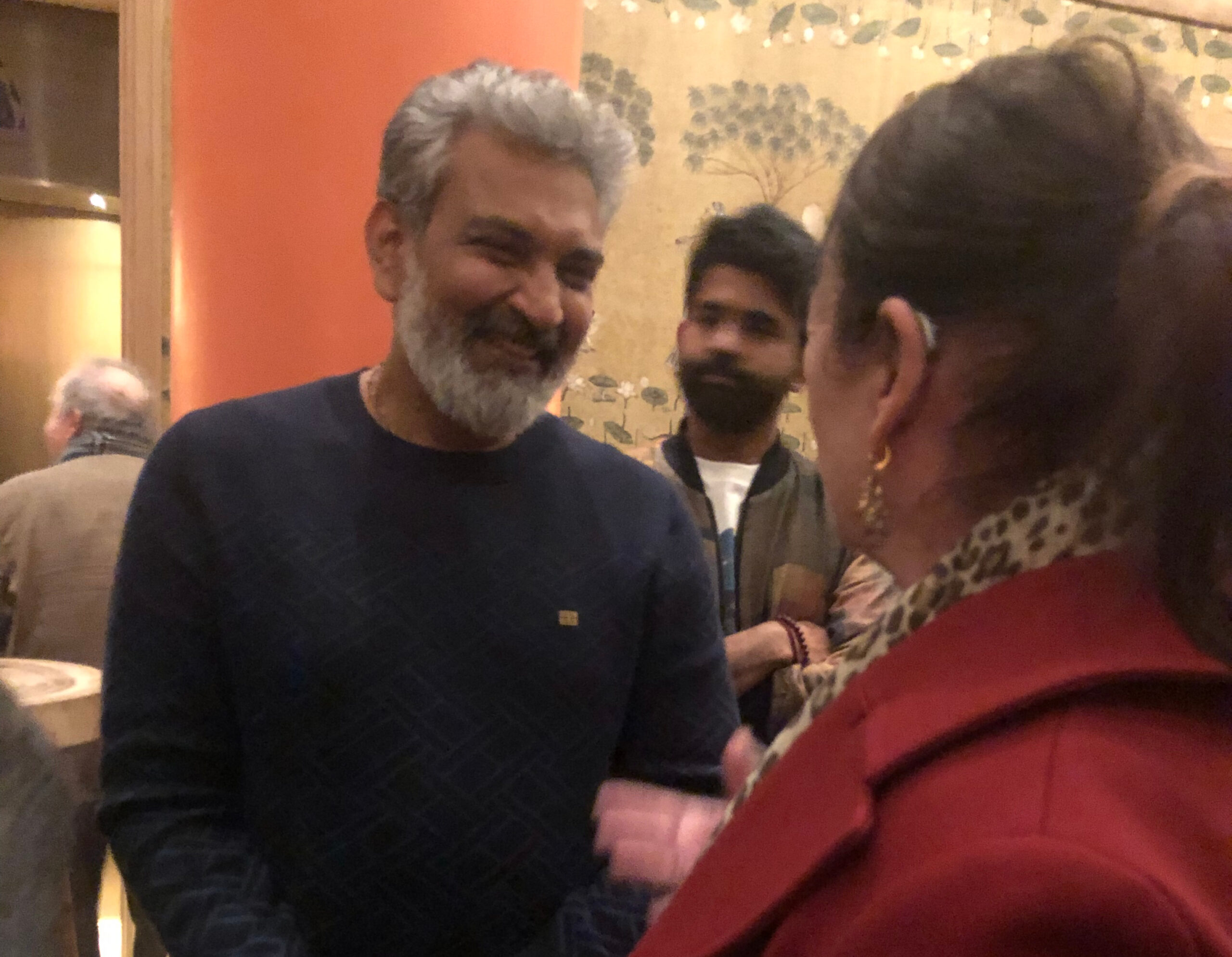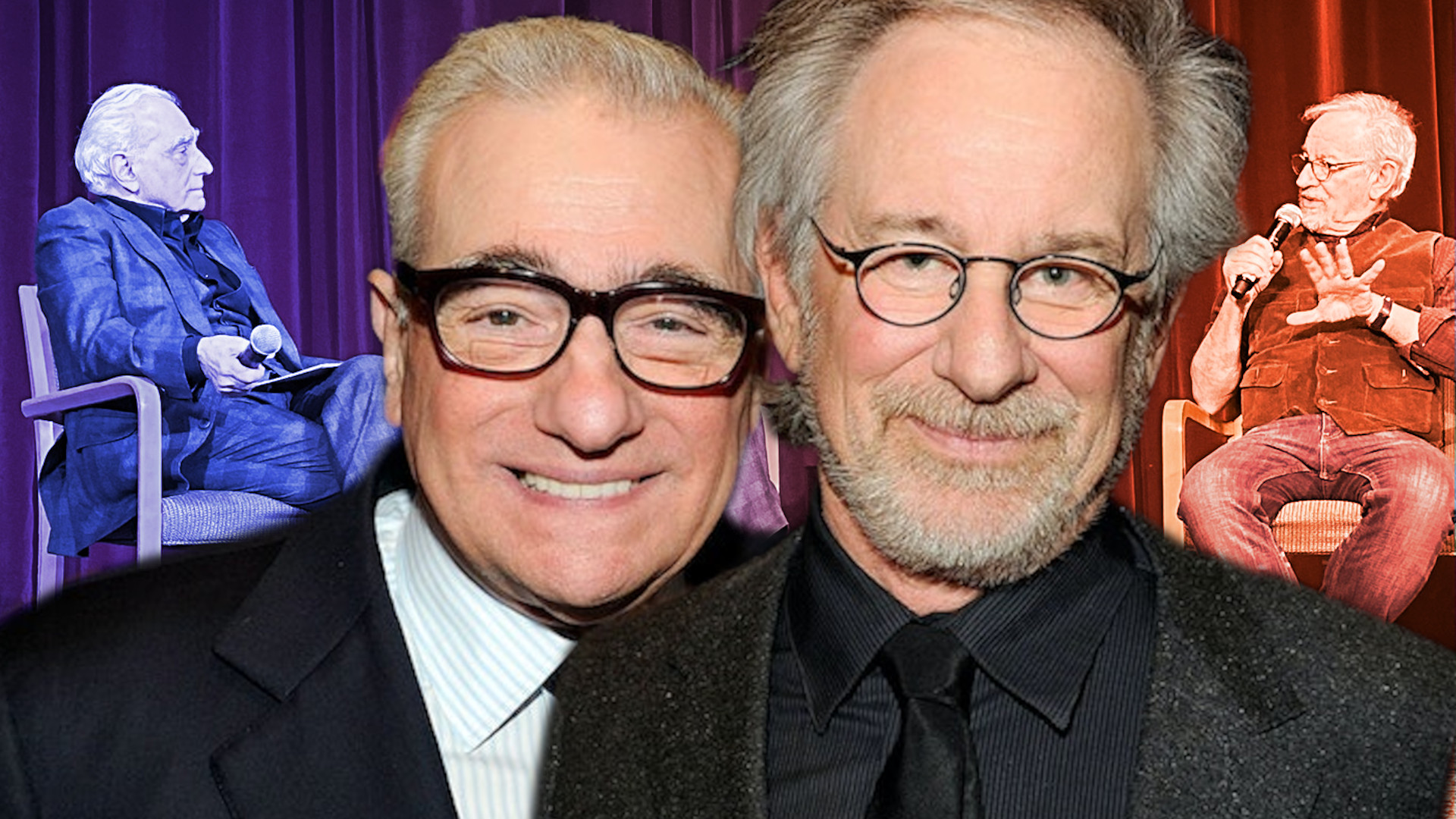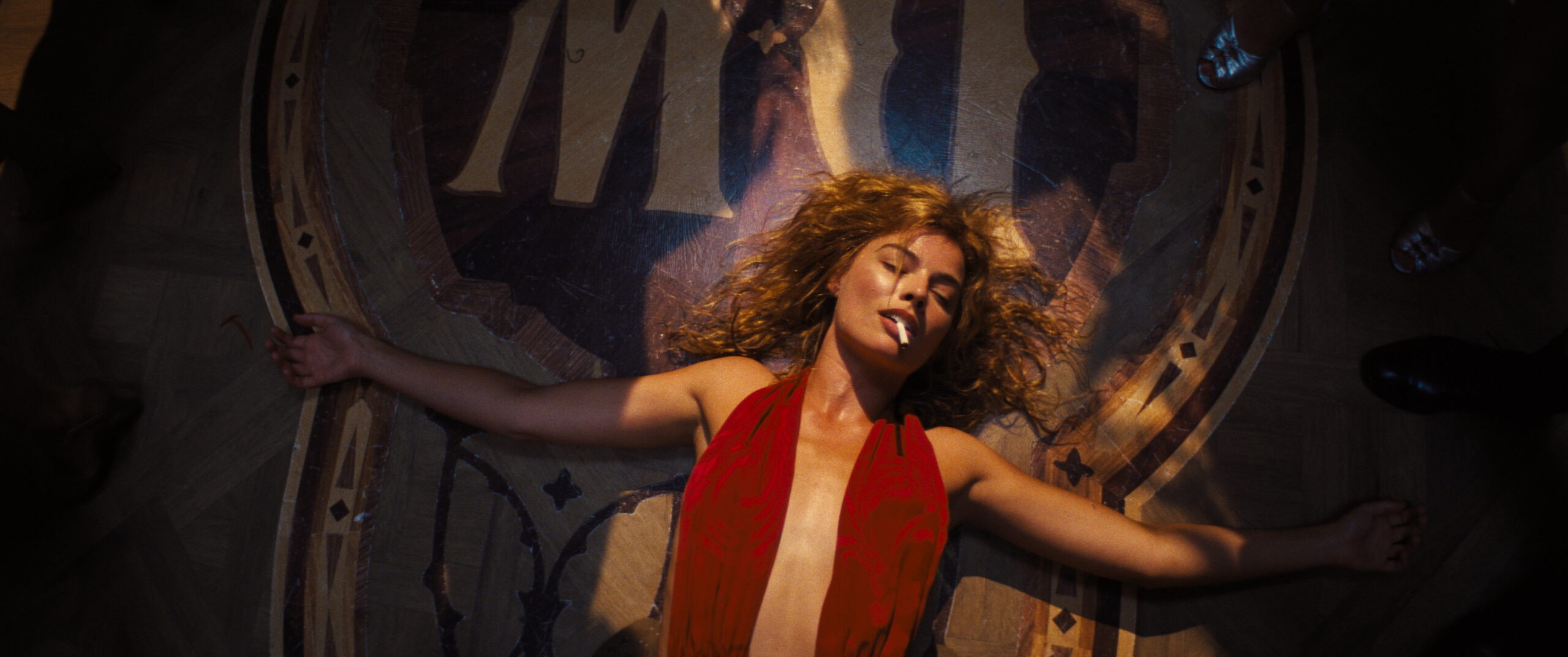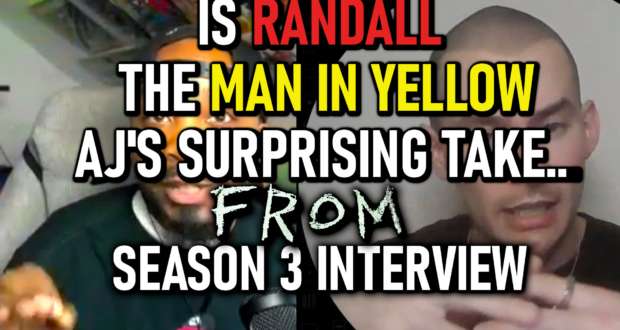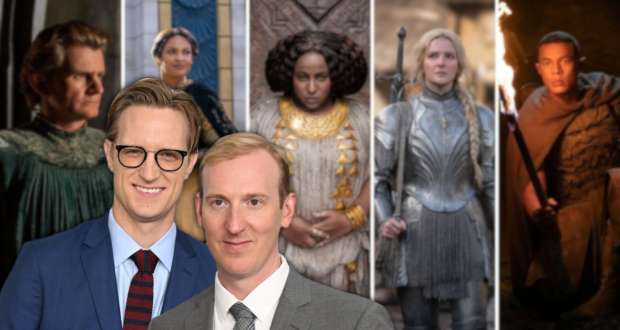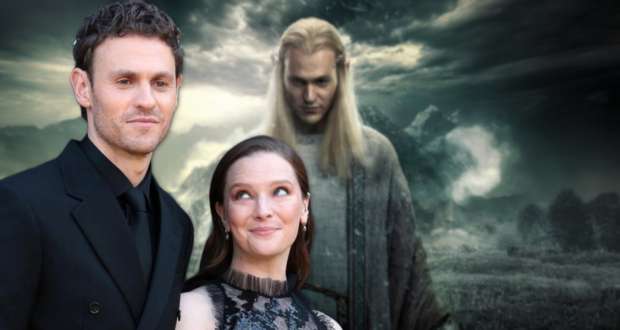
Director Antoine Fuqua (“Training Day”) is on a roll. His action thriller “Olympus Has Fallen” opened strong Friday with a 10 million dollar take at the box office in 3,098 theaters. Also it was just announced by Deadline Hollywood that Fuqua was reteaming with Denzel Washington, his “Training Day” Academy-Award winning star, for another action film, “The Equalizer,” which is being fast tracked to begin shooting next month.
“Olympus Has Fallen” stars Gerard Butler as a disgraced Secret Service agent reduced to working at a desk job in the Treasury. He tries to redeem himself and save the President’s life when North Korean terrorists, led by the bloodthirsty Kang (Rick Yune), kidnap him and take down the White House (code name Olympus).
The premise – that terrorists can lay siege to the White House in the wake of 9/11 – may seem a little out there but maybe not so much when you consider real-life, much in the news, budget cuts which means there is no more money for White House tours let alone the possibility of hiring more security guards for the President.
In fact the movie looks more believable than “White House Down,” the dueling White House overrun-by-terrorists flick directed by Roland Emmerich that is due out in June. In that film Channing Tatum plays a Capitol policeman who is on a tour of the White House with his little girl when the complex is overtaken by terrorists. Who’s going to buy that? There are no more White House tours.
But back to “Olympus Has Fallen,” which has a stellar cast rounded out by Aaron Eckhart (President Benjamin Asher), Morgan Freeman (Speaker of the House), Angela Bassett (Head of the Secret Service), Dylan McDermott, Melissa Leo (Secretary of Defense), Ashley Judd (the First Lady) and Finley Jacobsen (President Asher’s son).
Both Butler – his biggest hit was “Zack Snyder’s blockbuster film “300” – and Fuqua have been tirelessly and energetically promoting the film. Last week I met up with the charming director at a junket for the film at the Waldorf Astoria. In a suite with a room full of journalists he talked about the grittiness he was going for in “Olympus,” the gunplay and violence, and working with Butler, who is also the film’s producer.
And most importantly he was asked, how much on his mind is that other White House-in-peril movie?
Here are edited highlights from the interview:
Q: What’s it like working with the actor who is both star and producer? How closely did he watch the money?
Antoine Fuqua: Every day I would try to tell him not to do that.
It’s kind of good in a way as long as it doesn’t interfere with his performance, which it didn’t, because it teaches actors to be aware of scheduling, budgets and sometimes that says to the actor you’re going to get a few takes only. And you understand that because there’s only a certain amount of money, so it’s kind of an interesting conversation to have that with a producer/actor when he already knows I got 12 hours. Just hold that, so it makes it a little easier. There’s no “I’m not coming out of my trailer.” I’d say, “Great. Your money.”
Q: This is original because you’ve got two very powerful women in this. You have Angela and you have Melissa. How did that mesh together and come about?
AF: I wanted great actors in the movie period, from Gerry’s journey as a hero. It’s weird. I never thought about it in the sense that I wanted them to be women, if that makes any sense? It was just, who’s the best people for these roles? And Angela I’ve always wanted to work with and Melissa Leo as well and then you look at a woman like Hillary Clinton and I thought, “Who has that power? Who can do that? And Melissa Leo (snapped his finger) just (popped) in your head. And then who’s going to be the head of the Secret Service? And I think it was written for a man in the beginning. Yeah it was. And I thought, why does it have to be a guy? Get Angela. Like in my mind I didn’t sit back in my mind and think they never did have as the head of the Secret Service a woman in the movie. I just wanted to work with Angela, so that’s how it came about.
But I didn’t want them to be victims. I didn’t want them to be looked upon as soft in any way. That’s why the scene with Melissa Leo, where she’s getting beat up, she loved it by the way. She loved it more than I loved it. I was like, you gotta calm down a little bit. Melissa’s tough. Man, she was in everybody’s face in a good way, but those scenes, from the onset we’re in that world. That’s the world they live in, you know. This happened. I don’t see anybody showing them any mercy because of their gender. That’s the job. What was it like working with that White House set?
Q: you built the set and 1600 Pennsylvania in Shreveport, Louisiana. It looked very complex and you really took advantage of that space. Talk about the set.
AF: The White House set was a big task because we had to build it obviously because we were shooting it up.
Q: You mean the White House wasn’t blown up?
AF: We made that phone call and they didn’t go for that idea. Obama said, “I don’t think so.” It was complex because (of) tearing it up and shooting it up and making it real. We got actors really in those spaces and there’s not a lot of green screen you can do in that situation. I mean that walk of Pennsylvania Avenue we built that. We built those fences, and that fountain. All that stuff was real because people had to actually be there. Physically be on it and running and gunning, and bullets flying … so it was complex but fun, a lot of fun to do that. Walking down these beautiful hallways. Guys that worked with me got chills that worked in the White House, were like, this is amazing. And I was like, yeah, I can’t wait ‘til I blow it up. I was like a kid in a sandbox you know.
Q: How did the script come to you?
AF: Millennium sent me the script… It was a little different. It wasn’t as grounded and real, so to make it more real, if you guys are gonna make that version then I want to make it (he told them). And they did. I got excited about the idea of it, to attack the White House. Not like that, but in a movie sense. It’s fun. It’s entertainment. I was like that’s fun, that’s a big event. Why not?That’s an incredible job.
Q: Talk about focusing the story on the Secret Service agents. In the production notes you talk about how the job is 100 percent success or failure.
AF: Their job, their life, every day is prevention. Ronald Reagan gets shot that’s a failure. They should not be shot or touched in that way, so that was an important part of the hero’s journey as far as his personal journey. You know, losing the First Lady is a failure, a drastic failure. But the choice you have to make, Sophie’s Choice is, the job’s to save the President. The job is the Office. It’s a very difficult thing to do, so on the set daily it was a reminder, we talked about it all the time, what’s the most important thing? To save the President. Protect the office. Anything less than that is a failure, so that’s kind of how we felt about it every day.
Q: When was the first time you heard about “White House Down” and what was your initial reaction?
AF: The first time I heard about it was actually after I read the (“Olympus”) script and they said, “Well, there’s another movie being made, ‘White House Down’ and it has Jamie (Foxx) and Channing Tatum.” I don’t know, my reaction was okay, great, you know, again, if you’re going to let me make a grittier version, my version of this film than there’s room for both of us because, you know, Roland’s (Emmerich) a different director and you can give a director the exact same script because our visions are different, our approach is different, our life experiences are different. They’re just going to be different movies. So besides the White House attack it didn’t sway me in any way. I didn’t think about it much. I mean I didn’t go at it thinking I’m gonna beat Roland. I’m gonna make my movie. I’m sure he’ll make a really good movie too.
Q: The actors have been saying how real it was on set. Rick (Yune)was saying there was no fraternizing among people who were protagonists in the film. Is that the atmosphere you were going for? To keep it real throughout the process?
AF: You know, atmosphere sometimes can be manipulated, right? And some directors do that. And then sometimes atmosphere is sort of created, it just happens. You know, we were in that bunker that we built … and there’s blood on the floor. It’s interesting because it just kind of happened where everyone, because they’re really serious actors, everyone was in the moment, so Aaron Eckhart didn’t want to have anything to do with Rick Yune because he was the President and Rick Yune was the terrorist. Like literally on the set there was no fraternizing. Melissa Leo was like, oh my god, Rick Yune and her keep them apart. She was like tough. She was in his face.
It was really weird. And Rick was actually a really sweet guy. He’d come to me and go like, “Nobody likes me.” I’d say, “You’re a terrorist.” What are you talking about? He sincerely was like a little shocked I think, but as he walked into the bunker it was just like this intense environment, and that’s what I wanted, so I don’t know if I manipulated it that way or it just kind of happened that way, but I was in that head space too, you know, so it just kind of happened.
Q: All the actors have talked about how great you are to work with. But have you been getting the scripts that you’ve wanted and you deserved over the years?
AF: There are certainly those that I would like to do that didn’t come my way. And then, I have a list right now of some really good projects that come my way. I’ve been one of the lucky ones that I do get some of the great material. Now I’m trying to get those films made, more personal films for me, so yeah, but I don’t think it’s just me. I don’t know any filmmaker that sees a movie that’s really good and doesn’t go, “Why didn’t I get that script?” You know, like we all do that….I would love to do a movie like that… but Ben did that movie. I think we all go through that at some point. Yeah. We all go through that.
Q: Any movies coming out you can talk about?
AF: Well I mean it’s been out there, there’s a movie “Southpaw” that I want to make. I’ve been trying to get that made. Harvey Weinstein just bought it for me and I’m hoping that’s the next movie. It’s hard to say these days you know because of actor’s schedules, so we’ll see.
Q: Gerald Butler’s played action heroes before. Rick has played villains before. Morgan Freeman’s done this type of role before, so they have a familiarity with the skills needed. Did that give you a leg up or did you have to break some habits in terms of working with the actors?
AF: You know I wouldn’t consider it breaking habits as much as it is making sure everyone’s in the moment in this particular film. Because those skill sets are what make them all great in what they do and then that helps me in directing them in a certain amount of shorthand.
And then there’s also this particular hero’s journey. This particular hero is different than the other movies Gerry’s been in as far as the journey. As far as being the character who he is, the vulnerabilities he may have.
Same thing with Morgan or anybody else. Morgan has played these roles before but Morgan hasn’t played the role before where he stumbles into power. It’s different. Normally Morgan was playing God. It’s hard to break that habit. But this is something where Morgan’s playing a guy not used to having this much power. In the decision process as Speaker Trumbull, Morgan Freeman is slower, more thoughtful. And there’s fear. In the scene where he first sits down and they start telling him what’s going on you can see it in the way he plays it. He kind of has this look in his eyes as though, “How do you do this?” And then he sits back and then he says, “Give me coffee,” that’s classic Morgan, but I don’t remember Morgan Freeman playing a role like this where all of a sudden he is now stumbling into power. There are all different little things that matter.
Q: There’s such a discussion going in this country about guns and violence and films. Was that on your mind?
AF: Always in my mind. Always in my mind. I have children. Always in my mind. You know, but you have to separate reality from movies. That’s our job and to be responsible adults about the decision process of weapons in this country. There’s a process there that needs to happen you know? It’s a tricky question because the bigger question, there’s a bigger answer or discussion rather about that. I don’t like guns as an individual, personally…Luckily in movies everybody gets to go home and get to be with their families. But I think about it all the time.
